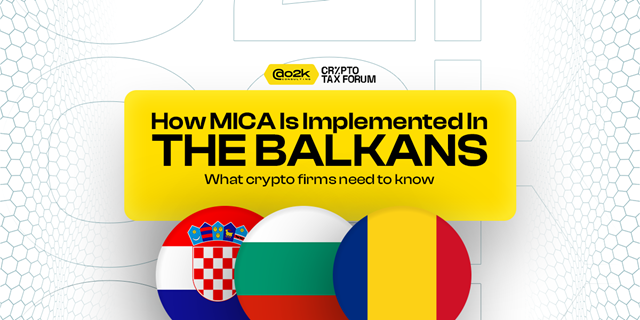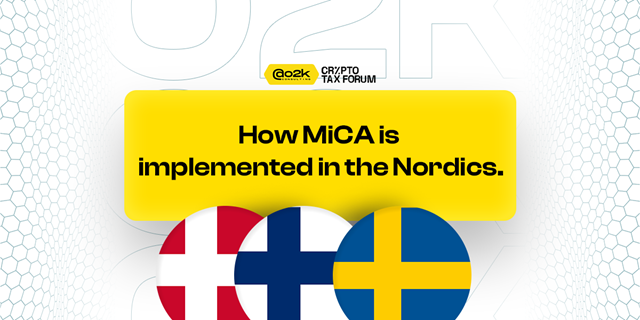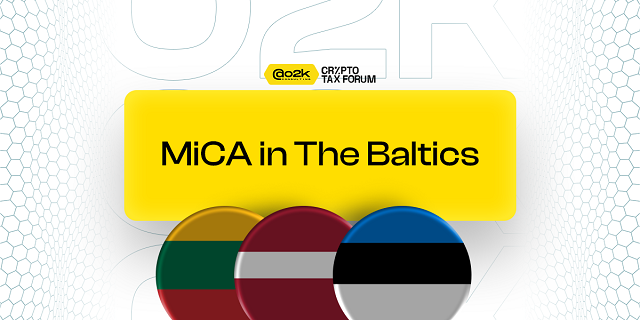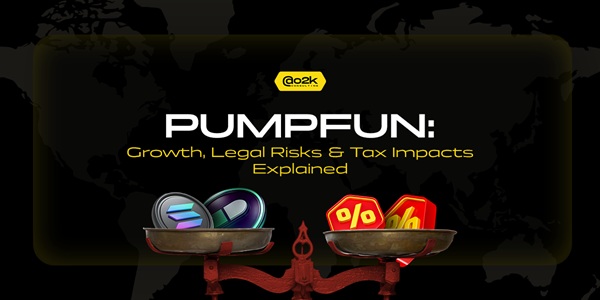🧑💼 Author
By: Antonia Eilander, MA LLM — Founder & CEO, O2K.tech
(with contributions from Hunter Adak, Gábor Germán, Eric Babaud, Mikhail Djaksigoulov, Łukasz Łukaszewski, and Stuart Dalmedo)
Crypto Tax Forum at INTERPOL: A Global View on Financial Crime
In September 2025, the Crypto Tax Forum (CTF) presented digitally at INTERPOL’s New Technologies Forum, uniting tax and law-enforcement professionals to tackle crypto-related financial crime.
Members from The Netherlands, Belgium, Luxembourg, Poland, Hungary, Gibraltar, and the Americas shared practical insights into how new technologies intersect with taxation, compliance, and criminal investigations.
The session focused on how crypto-assets, stablecoins, and DeFi protocols are increasingly used in cross-border tax evasion schemes — and how regulators and investigators can respond effectively.
The Netherlands: Transparency and Enforcement
Antonia Eilander (O2K.tech) highlighted the Netherlands as a stable but high-compliance jurisdiction.
Crypto is taxed under Box 3 (wealth tax), with upcoming reforms moving toward taxation on actual returns.
The Dutch Tax Authority and FIOD have become proactive in crypto tracing, seizing over €25 million in undeclared crypto income tied to VAT carousel fraud and offshore shell structures.
Recent EU coordination under 6AMLD and DAC8 aims to close the gap between tax evasion and money laundering, ensuring dual accountability.
Key patterns identified include:
- Invoice fabrication via token or NFT sales
- Labor misclassification in DAOs
- Shell entities with no substance
- Stablecoin misuse for hidden cross-border transfers
Hungary: Budgetary Fraud in the Digital Era
Gábor Germán (Hungary) emphasized that under Hungarian law, most crypto-related offenses fall under budgetary fraud.
VAT carousel schemes and invoice fabrication are increasingly adapted to digital assets, often involving offshore structuring and undeclared capital gains.
The “Eger tax fraud network” remains a major case study — over 160 shell companies and €12.5 million in losses due to coordinated crypto-linked VAT fraud.
Luxembourg: A Legal Pioneer with High Compliance Costs
Eric Babaud (Luxembourg) described a jurisdiction with one of Europe’s most advanced blockchain legal frameworks.
Luxembourg offers strong capital gains exemptions for individuals and tax credits for digital transformation, but corporate taxes and compliance costs remain high.
While the country has a robust fund ecosystem, opening and maintaining bank accounts for Web3 companies is still challenging.
Belgium: Balancing Innovation and Oversight
Mikhail Djaksigoulov (Coinpliance) presented Belgium as a strategic EU hub but warned of a complex tax environment.
With crypto exchanges under FSMA supervision, innovation remains strong, yet tax treatment for traders lacks clarity — particularly around crypto-to-crypto exchanges and personal income taxation.
Poland: Rapid Growth and Rising Illicit Activity
Łukasz Łukaszewski (Chaincomply) noted that Eastern Europe has the second-highest exposure to illicit crypto addresses worldwide.
Poland’s VAT fraud networks and fake investment platforms continue to cause significant losses, while phishing and impersonation scams exploit weak user awareness.
Authorities are scaling up cooperation with Chainalysis and EUROPOL to improve data-driven enforcement.
Gibraltar: A Trusted Hub for Crypto Enterprises
Stuart Dalmedo (ISOLAS LLP) presented Gibraltar as a transparent, low-tax, and business-friendly jurisdiction.
Its territorial tax system and absence of capital gains, wealth, or inheritance taxes make it attractive for crypto firms, though regulators maintain rigorous AML oversight and licensing standards.
The Americas: Stablecoin Laundering and DeFi Evasion
Hunter Adak (Chainly, USA) provided an overview of criminal activity across North and South America, highlighting six recurring patterns:
- Stablecoin laundering between Mexico, Brazil, and the U.S.
- Mixers and cross-chain obfuscation to conceal illicit flows.
- Fake exchanges and Ponzi schemes in Argentina and Brazil.
- Unreported DeFi income from staking and yield farming.
- NFT invoice fraud mirroring EU trends.
- Offshore shell networks using Caribbean havens for reinvestment.
He stressed the growing need for blockchain data collaboration between law enforcement, regulators, and analytics firms.
A Common Goal: Collaboration over Competition
The Crypto Tax Forum’s participation at INTERPOL underscored a simple truth — international cooperation is essential.
Each jurisdiction faces unique risks, but the underlying criminal patterns are increasingly transnational.
By combining forensic data analytics, tax intelligence, and legal harmonization, CTF and its partners aim to make the digital economy more transparent and accountable.
🌍 In Summary
INTERPOL’s 2025 New Technologies Forum reinforced that combating financial crime requires more than enforcement — it demands shared data, expertise, and trust.
From Europe to the Americas, Crypto Tax Forum members remain committed to advancing regulatory understanding, building partnerships, and promoting integrity in the evolving world of digital assets.
🌐 Sources
- INTERPOL New Technologies Forum 2025 – Vienna
- Crypto Tax Forum (O2K.tech)
- National tax authority reports (NL, BE, LU, PL, HU, GI, USA, BR)
✨
🌍🤝💼💡
Crypto Tax Forum, INTERPOL, tax evasion, crypto regulation, AML enforcement, stablecoin laundering, NFT fraud, crypto tax, blockchain forensics, international cooperation
You can download the presentation via this QR code
.png)
Or via this link





.png)






















.jpeg)


























.jpg)






































